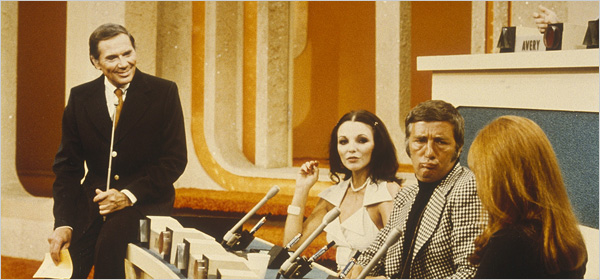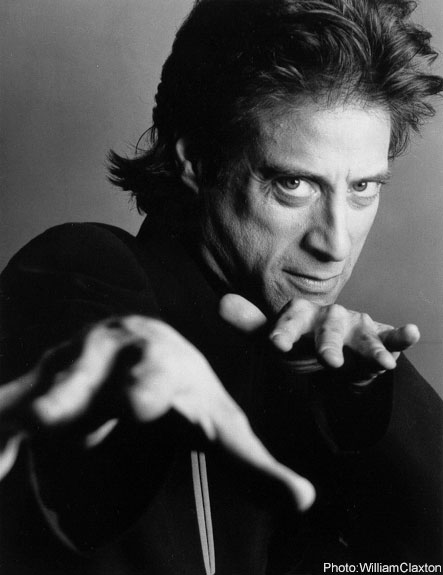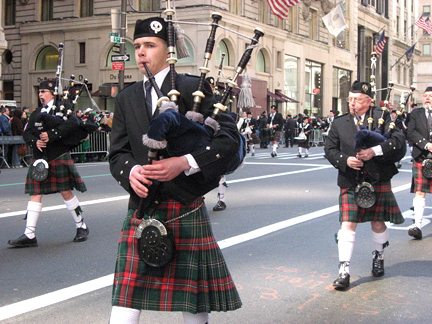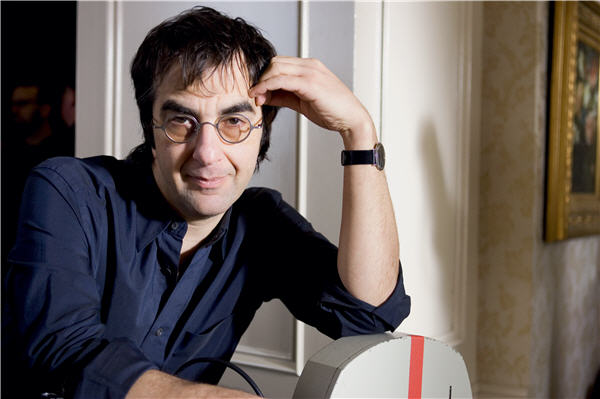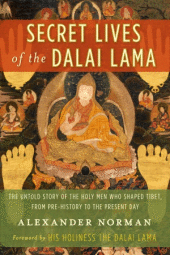
SECRET LIVES OF THE DALAI LAMA by Alexander Norman (Doubleday Religion, February 2010, $15)
www.broadway-books.crownpublishing.com
Those Brits do tell a ripping yarn! And what better subject than Tibet, the nation once mythologized as Shangri-La? Alexander Norman is a British scholar and writer at Oxford; the Dalai Lama is a world-renowned Nobel Peace Prize–winning, sometimes controversial Tibetan spiritual leader. And a temporal leader. And a monk. And . . . Well, what, exactly? Westerners are often awed by Tenzin Gyatso, the current incarnation of Chenrezig, the bodhisattva of compassion, and frequently mistake him for something like the Pope of Buddhism, or at least of Tibetan Buddhists. Not so, not so at all, and Norman explains the how and why in SECRET LIVES OF THE DALAI LAMA. Norman’s excellent book looks at the whole span of Tibetan history and culture through the prism of the Dalai Lama. Trying to explain exactly who and what the Dalai Lamas (all fourteen of them) are and have been to the Tibetan people and the world creates a tome that does not shy away from troubling aspects of the society and its history while still conveying the magic and wisdom of Tibetan culture. (In fact, the current Dalai Lama even contributes the foreword.)
The book sparkles with insightful flashes of history, art, monastic life, magic and folklore, politics, military history, foreign affairs—the Tibetan world as a whole, warts, jewels, and all. Face it: Any book that starts with a politically motivated murder in the Dalai Lama’s compound in 1997 and proceeds to a discussion of both the doctrine of dependent origination (emptiness, or shunyata) and the living embodiment of compassion could be either dry or sensationalist. But not this one; Norman is too expert a storyteller and so devoted to the tale that one can’t help but be swept along—surprised, touched, exhilarated, and, finally, awed.
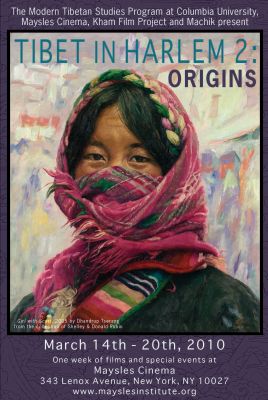
Norman was supposed to come to New York City for several talks and book signings, but those events were unexpectedly canceled. But that doesn’t mean there’s not a whole bunch of other things to do in relation to Tibet and its spiritual leader. The Dalai Lama himself will be teaching May 20-23 at Radio City Music Hall, discussing Nagarjuna’s Commentary on Bodhicitta and Shantideva’s Guide to the Bodhisattva’s Way of Life (tickets on sale now, $100-$360) and also giving a public lecture on “Awakening the Heart of Selflessness” (tickets on sale March 18, $25-$40). From March 14 to 20, the Maysles Institute’s Tibet in Harlem 2: Origins series features screenings of Sherwood Hu’s PRINCE OF THE HIMALAYAS (March 14, followed by the opening-night reception), Duan Jinchuan’s 16 BARKOR SOUTH STREET (March 15), Dorje Tsering Chenaktsang’s TANTRIC YOGI and ANI LHACHAM (March 16), Padma Tseten’s THE SILENT HOLY STONES (March 17, followed by a Q&A with the director), Sonam’s MILAREPA (March 18), Tseten’s THE GRASSLAND and Rigdan Gyatso’s THE GIRL LHARI (March 19, followed by a panel discussion and reception with Tseten and Gyatso), and Tseten’s THE SEARCH (March 20, followed by a Q&A with Tseten and the closing-night reception). The Maysles Institute will also host a short film showcase on March 22 featuring works by Tibetan filmmakers from around the world, with a number of the directors and actors present for a postscreening Q&A.
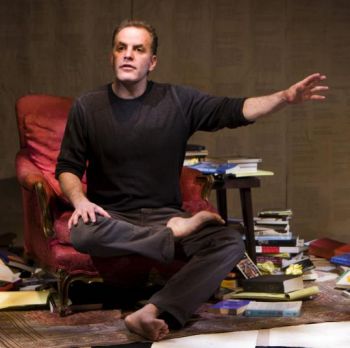
Evan Brenner will perform one-man show THE BUDDHA PLAY at Village Zendo on March 19
On March 19 at Village Zendo, you can catch a special one-night-only performance of Evan Brenner’s one-man show, THE BUDDHA PLAY—THE LIFE OF BUDDHA, which uses original texts to examine the “Triumph & Tragedy in the Life of the Great Sage.” At Tibet House, “Modern Buddhist Visions: Paintings by Pema Namdol Thaye” continues through April 16, comprising mandalas, tangkas, sculptures, and 3-D artworks. And at the Rubin Museum,“Bardo: The Tibetan Art of the Afterlife” runs through September 6, along with other exhibitions and special programs.
